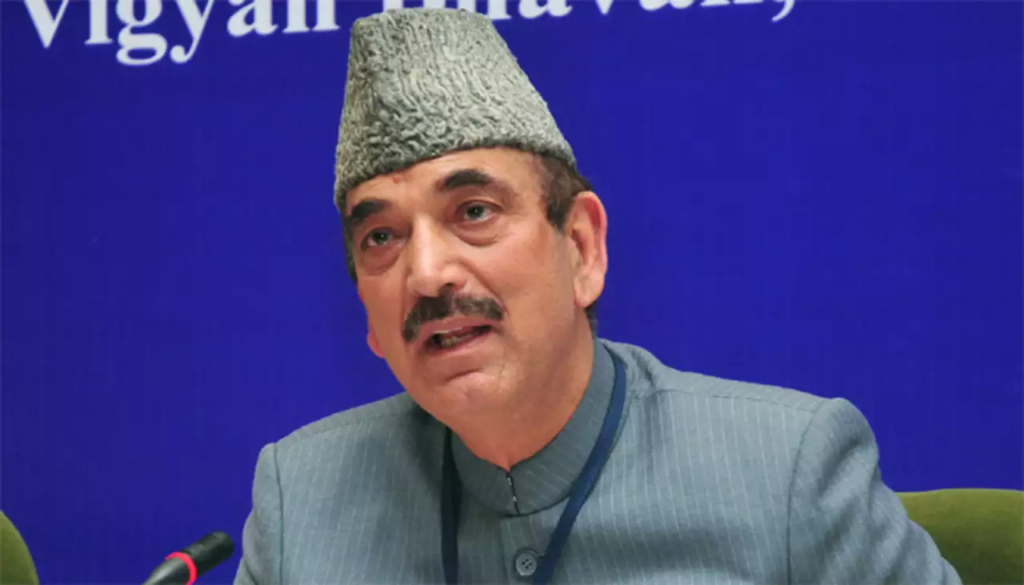Srinagar voter turnout not high enough to know people’s opinion about Article 370 abrogation: Azad
Srinagar, May 14 (PTI) DPAP chief Ghulam Nabi Azad Tuesday said the voter turnout in the Srinagar Lok Sabha constituency is not high enough to know whether the people are happy or angry with the abrogation of Article 370 and bifurcation of Jammu and Kashmir into two union territories in 2019.
The Srinagar constituency witnessed 37.98 per cent voting on Monday in the first Lok Sabha election in the valley since the scrapping of Article 370, with the Election Commission (EC) stating that it was the “highest turnout in decades”.

Azad said, “I had hoped that Kashmir will witness 80 to 90 per cent turnout in view of what has been happening in the past seven to eight years. Article 370 was removed, statehood was snatched. So I thought the turnout will be high, like 90 to 95 per cent.
“The increase of a few per cent hardly matters as it happens in every constituency of India. That way, we can not know whether the people are angry or happy (with the abrogation of Article 370 and snatching of statehood). It is a new thing for me,” Azad told reporters while campaigning for his party candidate in Kulgam district.
About the rise in poll percentage in the militancy-infested areas like Tral town of Pulwama, the Democratic Progressive Azad Party (DPAP) president said the increase of few per cent in the turnout is normal after every election across India.
“There were some pockets affected by militancy. After 1994-95, the militancy started waning. Today the militancy is next to nothing. The areas affected by militancy also witnessed 30-40 per cent votes and the areas which were not affected, also had similar turnout,” he added.
Asked about the protests in Pakistan-occupied Kashmir (POK), the former chief minister said he had sympathies with the people of Pakistan as they did not get a democratic set up like India.
“I pity the people of Pakistan as they did not get the kind of democratic government that India has got. The generals either directly run the government or their nominated people run the government in Pakistan,” he added.




